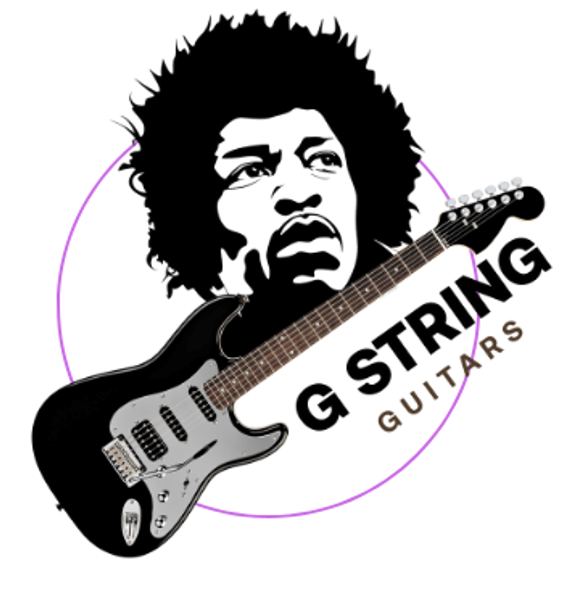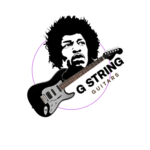Success as a guitarist takes a number of factors. These Guitar Career Success Tips will help you look at a number of factors and turn your passion into a profession. Read on.
This Post May Contain Affiliate Links
In compliance with the FTC guidelines, please assume that some of the links on these posts and sites are affiliate links (Amazon or others) from which I may earn a small compensation/commission from sales of certain items at no extra cost to you from qualifying purchases.
Anytime you see a link that looks like “astore.com, paid link, #ad, #CommissionsEarned or Amazon/Amazon.com/ca,”… it can be assumed that it is an affiliate link.
To learn more, follow the link below.
Guitar Career Success Tips
Guitar as a career is a topic that many experienced guitarists share a deep interest in.
I have watched talented musicians struggle despite their dedication, and I have seen others catch a break from unexpected moments.
Many skilled guitarists never breakthrough, while others catch the right opportunity at the right moment.
So, what separates those who make it from those who don’t?
Building a successful music career isn’t just about talent—it’s about combining hard work, timing, and other factors.
This article explains how applying several elements plays essential roles in a guitarist’s career and can shape your path.
Whether you’re chasing session gigs, live performances, or your artistic vision, these Guitar Career Success Tips will help you maximize your probability and be ready when lady luck is finally on your side.
Let’s dive in!
Music Industry
The music industry is a tricky business and is more competitive and unpredictable than ever.
Standing out now often depends not only on talent but also on social media algorithms and viral moments.
Musicians are also expected to constantly create content to stay relevant, blurring the line between artist and influencer.
Meanwhile, record labels are signing fewer artists, and the deals they do offer often favour the industry rather than the musician, pushing many to go independent.
In this landscape, success requires more than great music—it demands adaptability, fan engagement, multiple income streams, and opportunities that will present themselves.
(Read on)
Hard Work
You’ve probably heard of the 10,000-hour rule—mastering a skill requires roughly 10,000 hours of focus on one discipline.
This is especially true when playing guitar at higher levels.

That means refining your techniques, learning and applying music theory, developing stage presence, adapting to different musical situations, mastering your gear, composing music, adopting a home studio and more.
All these play a role in building a strong foundation for your career.
Still, many guitarists who’ve surpassed 10,000 hours of practice applied technical/digital skills and creativity struggle to make a full-time living.
Why?
While initial hard work is necessary and does not lessen the importance of practice and dedication, it’s only one piece of the puzzle and not the only factor in building a successful music career.
Student Of The Game
While working and maintaining your guitar skills, an emphasis on being a Student of the game is also part of the success equation.

You must learn to be aware of current music trends and how your playing can be applied.
One effective method of staying informed about the industry is reading music publications/blogs, listening to podcasts and monitoring social media trends/analytics.
These provide additional insight and valuable feedback on what is engaging current audiences and the latest music trends.
This habit keeps you updated and expands your perspective on how music’s art and business intersect, helping you find success by filling a gap in a constantly shifting market.
Positive Mindset
Many musicians see setbacks as learning experiences rather than failures.
Instead of giving up after rejection, they keep pushing forward—knowing that every gig, lesson, or challenge is part of the journey.
Embracing new ideas and techniques helps you remain flexible. This openness ensures that when fleeting opportunities arise, you are ready to adapt and take advantage of them.
Embrace criticism from mentors and peers to improve your skills and refine your style.
This willingness to evolve allows you to adjust your approaches quickly and keep up with the swift pace of the music scene.
Constructive feedback can provide new insights into how the industry’s most important stakeholders perceive your music.
Whether a small gig, a casual jam session, or a show presentation, Each is an opportunity to amalgamate into valuable lessons that contribute to your growth as long as you maintain a positive mindset.
The Role Of Timing
Timing is about staying prepared so you’re ready to take action when the moment comes. It can make a noticeable difference in how your career unfolds.
Being at the right place at the right time—whether landing a gig, meeting the right producer, or catching a viral moment—can launch an unknown musician into the spotlight.
Many Guitarists have shared stories about how a casual chat before or after a gig became a significant career-changing moment.
These moments remind us that sometimes the universe throws an unexpected curveball that completely alters our path and allows us to step up our career game.
Sometimes, opportunity knocks purely by chance, and those fortunate enough to be in the right place at the right time will reap the benefits.
Who You Know
Success in music often comes down to who you know.
Guitarists, on the pulse of their success, stay in touch, collaborate, and offer value to others, increasing their chances of being recommended for gigs.
Networking with producers, bandmates, and industry pros, joining local clubs, and participating in online communities can open doors that talent alone won’t.
Many famous musicians got their big break not just because of their talent but also because of who they knew.
For instance, Slash from Guns N’ Roses joined the band after a recommendation from a mutual friend.
Similarly, Metallica’s Lars Ulrich landed his band’s first significant opportunity simply by being persistent and making the right connections.
These opportunities may seem random, but they often happen because guitarists have positioned themselves well by networking, staying active in the music scene, collaborating with other musicians, and always following up with contacts they meet.
Nurturing relationships can lead to spontaneous gigs or even recommendations that jumpstart your career in unexpected ways.
Successful guitarists maintain genuine bonds with other musicians and industry professionals in a profession where unpredictability rules.
It means actively seeking ways to put your work before the right people and creating situations where change can occur.
Business Sense
In my experience, working on the business side of music is just as important as every other element we look at in this post.
Understanding contracts, managing finances, critical thinking, dealing with challenges and marketing your art are necessary skills that help create a well-rounded career and unexpected advantages.
I experienced this firsthand when asking a successful player what he thought was the most stand-out tip he could provide for his success in an unconventional environment like the music career.
He said having a background in business was key.
Instincts & Risk
Successful guitarists don’t just wait for opportunities; they take risks and trust their instincts when making career decisions.
Whether moving to a new city, investing in gear, or quitting a day job to pursue music full-time, they take smart chances when the time is right.
I have learned that stepping outside my comfort zone and trying something new can pay off.
Whether exploring a different musical style or playing at an unfamiliar venue, taking calculated risks often expands your horizons and exposes you to unexpected audiences.
Trust Your Instincts: if an opportunity feels right, don’t overthink it—take action.
Overanalyzing can lead to hesitation, and quick decisions often lead to new opportunities.
Using Social Media
Create An Online Presence
In today’s music industry, and during COVID, social media taught us that it is one of the most potent tools for guitarists looking to grow their careers.
Whether you’re an aspiring session player, solo artist, or educator, leveraging platforms like Instagram, TikTok, YouTube, and Facebook can help you reach a wider audience, showcase your skills, and create income opportunities.
To build your audience, always look to add value by creating high-quality content, staying active on social media, and consistently releasing music or performances.
Build A Personal Brand
Your social media presence should reflect who you are as a musician to establish a strong brand:

Your image, sound, and personality shape how fans and industry professionals see you.
A strong brand helps you stand out and attract opportunities.
Let your personality shine through in your posts and interactions by being authentic.
Use a recognizable colour scheme, fonts, and logo across all platforms.
Have A Clear Niche
When building a brand, you must focus on a specific market segment for a product or service.
Are you a shred rock guitarist, a blues player, or a fingerstyle steel string acoustic artist?
Defining your niche helps you attract the right audience for your style of playing.
Engagement
Social media is a two-way street.
The more you interact, the more engaged your followers will be.
Reply to comments and messages, and show appreciation for those who engage with your content.
Encourage participation from your audience to boost visibility.
Use Instagram, YouTube, or Facebook Live to jam, answer questions, or showcase new material in real time.
Adaptability
The COVID-19 pandemic was a defining moment for guitarists—both rising and established.
With live music on hold, many touring professionals faced a sudden career standstill, while relatively unknown guitarists used the downtime to launch or build their careers online.
This period allowed up-and-coming players to create consistent content, build a following, and refine their craft.
Platforms like YouTube, Instagram, and TikTok became launchpads for guitarists with little industry exposure.
Many embraced home recording, live streaming, and virtual collaborations, reaching audiences they might never have found otherwise.
The timing was everything, and those who adapted thrived.
Meanwhile, seasoned touring guitarists often struggled with the sudden halt.
Years of performing, networking, and structured routines disappeared overnight, leaving many in limbo.
The loss of live shows not only impacted their income but also their sense of purpose.
Some battled creative burnout, self-doubt, and even depression, unsure of when—or if—the industry would recover.
However, the players who reframed the moment found new ways to stay active.
Some launched online lessons, recorded albums, or shifted to session work, proving that adaptability and timing can redefine a career—even during a crisis.
Ultimately, COVID showed that success isn’t just about talent—it’s about recognizing when to pivot, embracing new platforms, and seizing opportunities, no matter how unexpected.
You can increase your chances by being active, open to new opportunities and adaptable.
LUCK
Luck still plays a significant role in the music industry that cannot be ignored. It results from applying numerous elements we cover but something else that is not quantifiable.
 For example, a guitarist can have the perfect skillset, the proper knowledge, and a strong work ethic. Still, if they don’t get the appropriate exposure or neglect certain factors (i.e. Social Media), they may never breakthrough.
For example, a guitarist can have the perfect skillset, the proper knowledge, and a strong work ethic. Still, if they don’t get the appropriate exposure or neglect certain factors (i.e. Social Media), they may never breakthrough.
Compare this to a guitarist who happens to go viral on TikTok or gets noticed by a major company on a YouTube channel.
Success Will Come
Hard work prepares you for the opportunity—but Luck decides when and how much of that opportunity comes knocking.
Think of LUCK as an acronym for “Labor Under Correct Knowledge.”
By applying the numerous factors we are considering to your career, you will find success on some level, and Luck will determine how much.
The part of LUCK that is unquantifiable will be a small amount of the equation; if you apply as many tools to the process as you can, success will come.
Lesser-Known Ways To Make Money As A Guitarist
Beyond touring and streaming, there are many overlooked opportunities for guitarists to earn a steady income.
Each of these income sources contributes to a more secure and balanced career.
Here’s a deeper dive into other creative ways to monetize your skills.
Writing & Blogging
Guitarists with a knack for writing can create blogs, e-books, or gear reviews.
Running a niche guitar site (such as reviewing signature guitars, gear breakdowns, or playing techniques) can attract sponsorships, affiliate marketing revenue, ad income and digital product sales.
 You can also bring in extra cash while building your authority in the industry.
You can also bring in extra cash while building your authority in the industry.
Even though this is not directly using your guitar to make income, and you must learn new skills (like SEO to rank your blog posts and attract organic traffic from Google.)
This ensures you still leverage your Guitar (even indirectly) to earn income.
Pit & Cruise Ship Gigs
Playing in theatre productions, cruise ship bands, or theme parks can provide a steady paycheck, free travel, and professional experience.
Cruise ship gigs typically involve playing in a house band for multiple weekly shows, offering a consistent income and networking opportunities with other musicians.
Theatre work is another overlooked option, as skilled guitarists are hired for Broadway-style productions, touring companies, or local musical performances.
Crowdfunding & Fan Support
Independent musicians can bypass traditional industry barriers using crowdfunding and fan support platforms like Patreon, Kickstarter, or Ko-Fi.
By offering exclusive content (such as early access to music, behind-the-scenes videos, or personalized lessons), you can create a dedicated fan base willing to support your work financially.
This model allows guitarists to sustain themselves without relying on label deals or big streaming payouts.
Work At A Music Store
Working at a music store is an excellent option if you want to be around guitars all day while getting paid.
You’ll gain insider knowledge on gear, network with local musicians, and possibly earn commissions on sales.
Along with opportunities to test and review new guitars and equipment.
If you develop guitar setup and maintenance expertise, you could turn that into a side business doing guitar repairs and setups.
Play On The Street – Busking
Busking may seem old-school, but it can be a surprisingly lucrative and fun way to earn money, especially in high-traffic areas.
Many famous musicians, including Ed Sheeran and Estas Tonne, started as street performers.
 This skill teaches engagement with an audience and self-promotion.
This skill teaches engagement with an audience and self-promotion.
By recording your busking performances and posting them on social media—Guitarists have gone viral, leading to substantial career boosts.
Teaching
Teaching is one of the most stable ways to earn as a guitarist.
Whether in-person or online, offering lessons can provide consistent income while allowing you to improve your skills.
If you have solid guitar knowledge, you can monetize it through private lessons, masterclasses, or online courses.
Platforms like Teachable, Udemy, and Skillshare let you create structured courses that generate recurring income.
Teaching via Skype, Zoom, or YouTube memberships can also provide flexible earning methods.
A Patreon account offering exclusive lessons, jam tracks, and practice routines can build a loyal fanbase willing to support your expertise.
Diversify & Combine
While none alone may rocket you to rock star status overnight, the combination creates a steady foundation for long-term success.
Experimenting with different revenue streams is essential until you find the mix that best suits your career path.
FAQ
More Career Tips
Final Thoughts
It is also key to understand that there is no one-size-fits-all approach to building a music career.
Feature image courtesy of Mohd Zuber Saifi from Pixabay
All AI images created by Gstringuitars on www.bing.com

Starting A Journey At 7 Years Of Age, The Love For The Guitar Only Became Stronger Going Into My Teens. This Leading To An Exciting Time Of Teaching, Performing, And Recording. Join Me Now As We Can Bring The Love Of This Instrument To Other Musicians Globally.


 Making a living as a guitarist is not quickly answered with one Element or Tip.
Making a living as a guitarist is not quickly answered with one Element or Tip.




